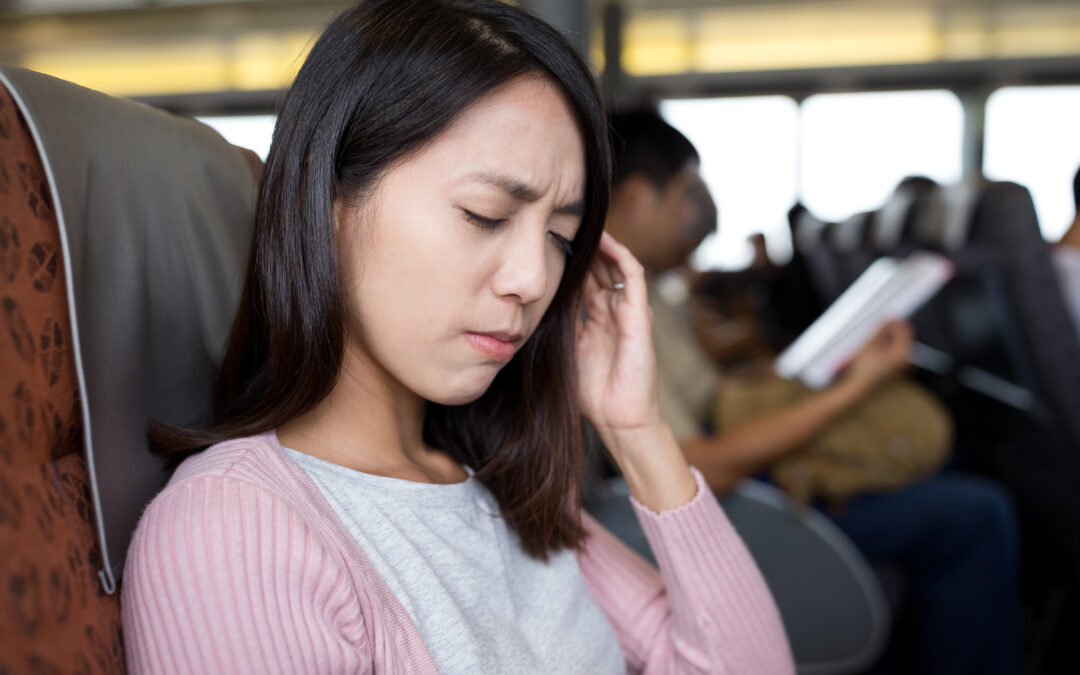
It was about 1:50 a.m. when I shuffled onto my first Trans-Pacific flight. I was about to embark on one of the longest airline flights in the world – a whopping 8,065 miles from Newark to Hong Kong.
I found my seat, crammed my admittedly overstuffed carry-on into the compartment above me, and tried to get as comfortable as I possibly could with just 32 inches of legroom. For the next 15 and a half hours, seat 29A would be my home.
I came prepared. In the weeks leading up to my flight, I read as much as I could about how I could make almost 16 hours in one chair – packed in with dozens of strangers – more bearable. I was ready to get to Hong Kong, equipped with my giant water bottle, a pack of gum, and a pair of compression socks.
Before this flight, I had never stopped to think about what my body was going through each time I travel by plane. Although flying is safe, it can seriously mess with the body – leading to some not-so-pleasant feelings while traveling.
Luckily, there are some things you can do to help your body adjust, but it starts with understanding exactly what your body is going through on your flight. Let’s take a look.
Your Brain and Lungs Get Less Oxygen
Have you ever felt inexplicably tired on a flight, even if it’s smack dab in the middle of the day?
That’s because airplane cabins are pressurized to mimic the air at about 7000 feet above sea level, causing your body to absorb less oxygen than you’re probably used to. With less oxygen in the blood, you may feel tired, dizzy, or even just feel “off.”
You may be tempted to reach for the coffee for a bit of an energy jolt, but don’t. Instead, stay properly hydrated by drinking plenty of water.
Your Blood Has Trouble Circulating
Any time you’re sitting for extended periods of time, blood will start to pool in your legs and feet. This can cause your feet to swell, causing discomfort. In rare and serious cases, it can even cause blood clots.
This lack of efficient blood circulation can even contribute to your sleepiness, making you feel a little foggy. It’s also why you might be feeling tipsy after just one plane cocktail.
To keep your blood circulating, swap the alcohol for water, grab a pair of trusty compression socks, and be sure to get up and walk around during your flights. Some in-seat exercises can also help get your blood pumping.
Your Ears Become Clogged
Chances are, you’ve experienced “clogged” ears before. Not only can this muffle your hearing, it can also become incredibly uncomfortable and frustrating.
Clogged ears happen due to the change in cabin pressure. The gases within your body expand, trapping air inside your body. This is the same reason you might feel bloated while flying.
To help your ears “pop,” swallow, yawn, or even chew gum. For small children, a pacifier can help free some of that air trapped in their ears.
You Lose Water
The air within the plane’s cabin is recirculated throughout the duration of the flight, making it incredibly dry. Unfortunately, this means the air will pull moisture from your skin and mouth, causing you to become dehydrated.
Dehydration can contribute to a whole mess of discomforts while traveling, including everything from dry skin and chapped lips to fatigue, which can make your jet lag worse.
The best way to avoid dehydration when flying is to drink lots and lots of water. Skip the alcohol or coffee, which can contribute to dehydration. For a boost of moisture in your skin and lips, remember to bring lotion and chapstick.
Even if you’re not traveling thousands and thousands of miles, it’s important to understand exactly what your body is going through every time you fly. Taking proper care of your body while traveling can set you up for a healthy trip.

